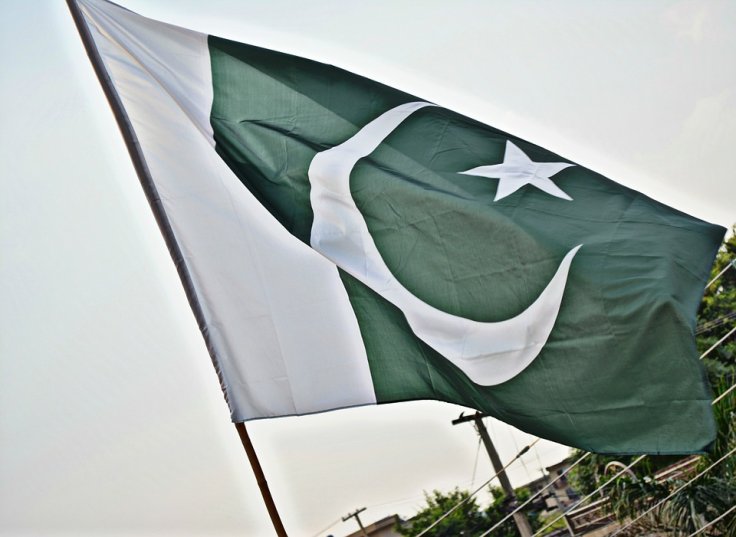
Months of simmering discontent have erupted into widespread protests across Pakistan administered Kashmir, as the Awami Action Committee (AAC) spearheads a fervent campaign for fundamental rights and autonomy. The AAC, comprising a diverse coalition of traders, lawyers, and political representatives, has amplified its calls for justice, highlighting grievances over exorbitant electricity bills, the absence of wheat subsidies, and allegations of land seizures by the Pakistani army.
Efforts to address these pressing issues, including government-initiated talks convened in November 2023, have faltered, failing to quell the rising tide of dissent among the populace. Despite the formation of a 30-member Joint Awami Action Committee (JAAC) to engage with the government, discussions held in Muzaffarabad on November 8-9 yielded little progress. Following internal discord and mounting pressure from their respective political bases, JAAC leaders extended the deadline for government action to December 10, in hopes of a meaningful resolution.
Speaking to International Business Times, Singapore, Professor Sajjad Raja, President, Foreign Affairs Committee, National Equality Party-JKGBL, described the movement as a people's rights movement, demanding basic necessities like wheat flour and electricity, which are substandard and overpriced in the region.
However, the failure of authorities to enact substantive reforms only served to embolden the protestors, leading to a resurgence of demonstrations with heightened determination. In a bold assertion of defiance, the JAAC called upon citizens to cease paying their electricity bills as a means of exerting pressure on the government to heed their demands.
"Electricity which we produce, we want it at the cost of production. We demand wheat flour, we demand roads, we demand hospitals, we demand schools, you know, education facilities, health facilities. These are our basic fundamental rights," Prof. Raja explained.
The situation reached a critical juncture on February 5, 2024, as the JAAC declared a comprehensive shutterdown and wheel-jam strike across the region, rebranding the government's "Kashmir Solidarity Day" as "Peoples Rights Day" (PRD). This symbolic gesture represented a direct challenge to the government's perceived hypocrisy in expressing solidarity with Indian-administered Kashmir while neglecting the rights of its own populace. In response, Pakistani intelligence and security forces reportedly sought to intimidate JAAC leaders, albeit unsuccessfully. Despite threats from militant groups such as Jaish-e-Mohammad, the PRD was widely observed, marking a historic moment of collective defiance and solidarity among the Kashmiri people.

Tensions further escalated on the night of May 8, 2024, as AJK Police conducted a warrantless raid on the residence of a prominent JAAC member, resulting in the arbitrary arrest of over 30 activists and alleged harassment of their families. In a similar incident, police forcibly entered the home of Khawaja Mujataba Banday, a core JAAC member and Central Secretary General of the NSF, looting valuables and vital documents.
Violence erupted during a peaceful protest in Daddyal, Mirpur, as police resorted to baton charges and tear gas near Dadyal Girls College, resulting in severe injuries to several demonstrators. Tragically, tear gas canisters bursting into classrooms led to injuries among students, with one casualty reported.
"This escalation is from government side and Pakistani side. Pakistan sent their paramilitary forces, Punjab Constabulary and Frontier Constabulary, to crush these movements," Professor Raja said.
"Pakistan is suppressing us. Pakistan is exploiting us and I mean these are constitutional issues. So, these are the issues which we are basically pressing for and these are our demands and this movement is totally peaceful. Over a year now, it's about 15 months, not even a single leaf, single branch from a tree has been broken. Not even a single stone has been felled," he added.
Confrontations peaked on the morning of May 10 in Muzaffarabad, as police clashed with stone-throwing protesters at the Tanga Stand and Samma Bandi areas. The violent clashes inflicted numerous injuries, including on Mir Khursheed Salharia, a prominent protest leader.
In a strategic move to disrupt normalcy, protesters seized control of key traffic arteries such as the Neelum Bridge, permitting only ambulances to pass during the wheel-jam strike. Military and government vehicles were also halted at Kohala, effectively paralyzing movement in the region.
Amidst the escalating unrest, Sardar Amman Khan, a leader of the Jammu and Kashmir Liberation Front (JKLF) from Palandri AJK, issued a stern warning, asserting that any attempts by the Frontier Corps (FC) or Police Constabulary (PC) to impede their march to Muzaffarabad would be met with forceful resistance.
Undeterred by the government's crackdown, the JAAC has announced plans for a "Peoples Right Long March" to Muzaffarabad on May 11, 2024. Protesters intend to assemble outside the Provincial Assembly, demanding the fulfillment of their rights or the dissolution of the assembly itself. This planned march represents not only a protest but a watershed moment that could redefine the future trajectory of Pakistan administered Kashmir and its relationship with the broader Pakistani state. As the region stands at a precipice, the demands for autonomy and rights voiced by its inhabitants resonate louder than ever, signaling a seismic shift in the socio-political landscape.
"Our people don't want to live with Pakistan. We don't want to stay with Pakistan. There have been two independent surveys in the past and both surveys said, one survey said that 73% of the people and the other survey said 76% of the people they don't want to live with Pakistan," Prof. Raja told International Business Times, Singapore.








